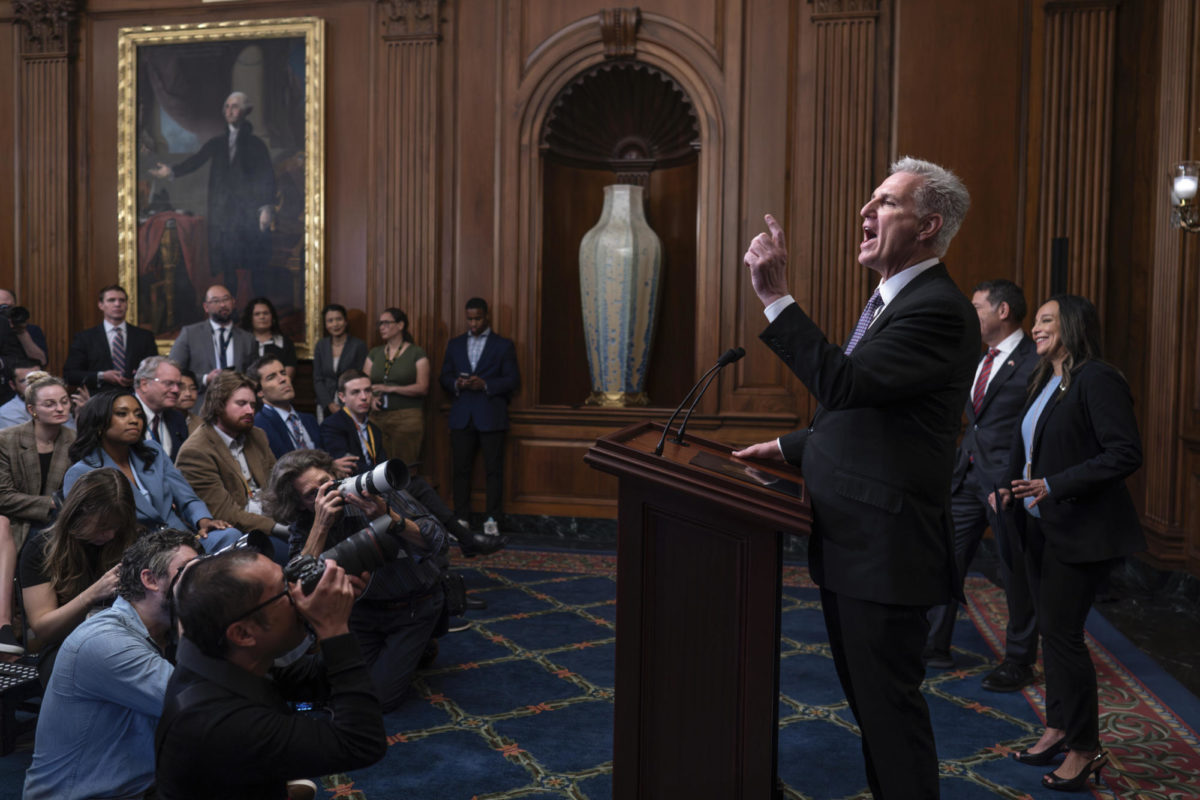The federal government is on track to shut down Sunday morning.
That means no mail, no national parks and no paychecks for approximately 4 million employees of the federal government. That includes both civilian workers and uniformed servicemembers.
“Democrats and the Republicans have not agreed upon the budget priorities of the United States,” TCU political science professor James Riddlesperger said. “There are a group of about 10 to 12 members that are saying they’re no longer going to play ball.”
“Either they get what they want, or no budget will pass at all,” he said.
Negotiations stall on Capitol Hill
Senate Democrats and Republicans reached an agreement on a stopgap spending bill Tuesday afternoon that would keep the government afloat until Nov. 17. The bill, which includes $6 billion in new support for the Ukrainian war effort and $6 billion in disaster relief funding, cleared the Senate in a 77-19 vote.
The bipartisan bill appears unlikely to survive the House of Representatives. House Republicans’ top objection to the bill is that it includes funding for Ukraine but omits funding for border security, Politico reports.
House Speaker Kevin McCarthy pushed the House to a vote on a stopgap funding bill, known as a “continuing resolution,” on Friday afternoon. The Speaker’s last-ditch effort failed in a 198-232 vote, with 21 Republicans voting against the measure.
If passed, the bill would have given lawmakers until October 31 to come to an agreement on a more permanent budget.
The federal government enacted three similar resolutions to avert a shutdown in December 2022. “They [lawmakers] have chosen to kick that can down the road by continuing to fund programs largely at the same levels as they’ve been funded,” Riddlesperger said.
If House Republicans fail to do their job and fund the government, everyone in America could be forced to pay the price.
We reached a bipartisan agreement this summer.
House Republicans: Stand up to extremists and do the job you were elected to do.
— President Biden (@POTUS) September 29, 2023
Millions facing stoppage of work and pay
If an agreement is not reached by Saturday night, the federal government will shut down for the 22nd time in US history.
“Government shutdowns can have huge indications,” Riddlesperger said. “Not all of them are created equal. In general, regular payments will continue to be made, like Social Security, or if you have Medicare or Medicaid, those kinds of things… will continue to be okay.”
An extended shutdown may even impact air travel and disaster response. Many employees of the Transportation Security Administration (TSA) and the Federal Emergency Management Association (FEMA) would have to work without pay.
“If the TSA decided that they just didn’t want to show up for work because there’s no budget to pay them, that could shut down the entire travel industry, which would have just a devastating effect on our economy,” Riddlesperger said.
TCU, too, has its eyes on Capitol Hill. A shutdown could impact research activity on campus, particularly studies that involve federally-sponsored grants and contracts.
“We are confident that, as with previous federal government shutdowns, we will successfully navigate such a scenario with the assistance and coordination of our research community,” TCU’s associate provost for research Floyd Wormley said in an email Friday.









